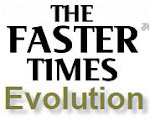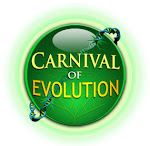In the paper The Role of Geography in Human Adaptation, Graham Coop (et al.) moves beyond expressed phenotypes and investigates the traces of human adaptation found in the genomes of extant and geographically diverse populations. By analyzing nonsynonymous SNPs, the study found that signals expressed in the genome can be used to predict the patterns found within specific loci. Essentially, the patterns they identified demonstrated that closely related populations possessed fewer genetic differences than would be expected having been subject to differing ecological pressures over the past 100,000 years. These apparently resilient genetic patterns - they suggest - are indicative of a selection pressure that “has been strongly constrained by the historical relationships and gene flow between populations.”
(Image from Article)

From the Introduction:
“…Humans have spread out of Africa to colonize almost all of the world's land mass, and in the process have experienced a vast range of new climates, diets and ecosystems. Humans have also encountered new pathogens as they moved around the globe and moved into close proximity with domesticated animals, and as human population densities increased.
These changes in human ecology suggest that there has been ample scope for the action of natural selection in recent human evolution. Moreover, most species, including humans, probably face various additional selection pressures on a persistent basis: e.g., due to sexual competition, viability selection and resistance to evolving pathogens. Hence, it seems reasonable that our genomes would show evidence for recent selection…”
Evidence for natural selection is exactly what they find, however they also conclude that the power of selection on humans can be very weak and therefore easily influenced by historic patterns of migration and genetic drift.
The paper is well worth a look…
Coop, G., Pickrell, J., Novembre, J., Kudaravalli, S., Li, J., Absher, D., Myers, R., Cavalli-Sforza, L., Feldman, M., & Pritchard, J. (2009). The Role of Geography in Human Adaptation PLoS Genetics, 5 (6) DOI: 10.1371/journal.pgen.1000500





























Okay, I'm curious but not a genious. What does this all boil down to that's so fascinating but not expected? Can't it be explained in layman's basic social/biology science vernacular? Followed this link from Science Blogs- megancyber@hotmail.com
ReplyDeleteMegan,
ReplyDeleteWell… Because you mentioned that you followed a link to this blog post, let me first bid you a hearty welcome to Ecographica!
Based on my understanding, the results presented in this paper aren’t necessarily “unexpected,” in fact they would have probably been somewhat predictable… But by “predictable” I don’t mean to imply that they’re uninteresting or unimportant.
What the research is saying is that even though humans have migrated, immigrated and intermixed in a wide array of environments over the past 100,000 years – in places with a range of temperatures, elevations, seasons, etcetera – their genomes show little evidence of adaptive change to these environments.
If one considers the variety of ecosystems that humans have inhabited, a certain “degree” of specialization and adaptation to those ecologies would be expected; the current paper makes the argument that the “degree” of specialization evidenced by the genome is less than this expectation. In contrast to the “expected” genetic indicators of specialization and adaptation, the genome displays patterns that reflect a deeper history and greater commonality.
The authors of the paper conclude that the lack of genomic support for adaptation is due to a lack of pressure by natural selection and the added influences of random “re-mixing” and accumulation of gene frequencies through sex (drift).
As stated previously, from my perspective these results aren’t unexpected… Firstly, although 100,000 years is not an insignificant amount of time, humans are a relatively new species and have experienced a tremendous amount of reproductive success; this means that constant movement and exploration may have acted as a buffer to a process that is already conservative by nature. Conservative because the units of natural selection – genes – “strive” to maintain high-fidelity replication, and therefore limit change.
Secondly, Homo sapiens are unique in the animal kingdom in that “adaptation” to new climates doesn’t have genotypic change as a prerequisite. Over the last 100,000 years human culture has developed in such a way as to facilitate a method of survival in which we manipulate our environment to fit our needs as opposed to adjusting our physiology to endure the parameters dictated by our surroundings – this also buffers genomic change.
There are several other reasons as to why this research isn’t unexpected, but since this comment is already longer than the original post let me wrap-up by saying that this research brings us one step closer to utilizing the tools provided by genomic research, it may lead us to take a closer look at several previous studies that have provided evidence somewhat contradictory, and most importantly, it teaches us a little about the role of evolution on our species.
If you’d like additional or more specific info, feel free to drop me an email – jmhumphr@kent.edu
Thanks!
I'm also a new-ish reader, I found you in the research blogging sidebar on scienceblogs. I like your writing but I find your articles a little brief sometimes and I don't have access to most journals atm, so it was great to have a bit more detail in the comments. Really clearly explained as well!
ReplyDeleteThanks for the reply to my comment. Part of me was inferring there was something to be taken from the research that could almost be twisted into something unPC. But the mere fact humans adapt our environment faster than our genes can is clearly an explanation. But I also think cultural tendencies could make physiological features a maladaptive trigger as to reduce further passing of the adaptive genes through sex. Basically, I'm thinking ethnic and racial prejudice furthered through religion or other practices might also keep adaptive genes from speading as widely as they should or could in species that have not as big issues about outer appearances. I do know about birds and other sexual visual cues that help mate choices but humans carry arbitrary values for choosing mates within the species ethnic groups. This is just my totally unempirical and inferred conclusions.
ReplyDeleteCharlotte- Thanks for the compliment, and as with Megan, welcome!
ReplyDeleteYour observations are correct, the majority of the articles here seem brief to me too... Being relatively new to the blogosphere, I find myself struggling to maintain a balance between quantity and quality. A work in progress I suppose… But feel free to offer any suggestions on content, style, etc – the more critiques my writing receives, the better the product will be in the log run.
Megan- I’m certain that you’re right about religious, political or other biases affecting human mate choice; however for the sake of argument, do you think that in regards to humans choosing a mate based on a social prejudices, that such a choice could ever be beneficial to physical survival or reproductive success?
Hypothetically, imagine that you had to choose between two potential mates; one potential mate that possessed slightly fewer “adaptive qualities” and one with slightly more “adaptive qualities.”
And – for some superficial reason - your family will disown you if you choose the mate with more “adaptive qualities.”
Would you be able to raise as many children, to the same degree of health, financial stability, emotional security and morality, with or without your family? Does being a member of a supportive family (peer group, clan, gang, click, church, social group, etc…) improve your biological fitness?
You inquired this "do you think that in regards to humans choosing a based on social prejudice, that such a choice could ever be beneficial to physical survival or reproductive success?", which towrds the end of your reply you make another statement that seems to be an answer to the earlier query. "Does being a member of a supportive family (peer group, clan, gang...snip etc..) improve your biologial fitness?" It's like a somewhat rhetorical "question-response" post to yourself. Was that your intention?
ReplyDeleteAs I see it prejudice is usually fostered strongly within the very groups you mentioned as thus allowing a more secure and safer environment for a female to raise her progeny. The surrounding support system will only provide their protection if she chooses or accepts the allowed mate regardless of 'maladaptive' qualities they might possess.
The strong genes mixing in ancient eras seems to come most from wars that foster forced and coerced mingling on a wide scale between populations using some of the conquests like the Vikings in British Isles/Northern Europe or the Spanish in America, which then settle into less aggressive /joke/ cross pollenation. But I do know there are positive instances of cultural comingling and acceptance and as modern cultures have embraced diversity it is happening even more. Still even things like Hollywood changing beauty can affect a more diverse pool of more options through arbitrary/superficial filtering that lowers chances for the genes that increase survival.
Sorry, I'm not emailing you, I like posting to keep from writing too much or rambling.
Megan,
ReplyDeleteAlthough I attempted to make my position evident in my response, I didn’t intend the posed question as rhetorical – I sought and anticipated a response.
In terms of human evolution, I’d be inclined to consider the whole of human culture as a non-adaptive trait. Certainly the ability to have culture in the first place is either a direct result of natural selection, or a “side effect’ of adaptation(s), but as for the particular and individual aspects, beliefs or practices of any culture, they are artifacts of circumstance, or at best memeplexes.
Said another way, natural selection provided humans with a level of sociality and cognition capable of generating and transferring ideas, concepts and beliefs; but the value or substance of those ideas, concepts and beliefs isn’t governed by natural selection directly.
So in my view, any impacts of culture on biological behavior, such as in mate choice, are so diffuse and varied as to be virtually undetectable. What are detectable in biological systems are those traits beneficial/detrimental to physical survival.
In regards to the “forced” mixing of human genes in past eras, there are two ways to view this situation. From the biological system perspective the ability of one population to takeover, conquer or “breed-out” another population would be considered beneficial and positive. If viewed from a cultural or moralistic standpoint, such a conquest would be seen as nothing short of evil.
As for Hollywood skewing beauty, I’m not convinced that it does. It may be more likely that what Hollywood does is over emphasize and exaggerate the indicators of sexual desire that humans are naturally perceptive to; in this since Hollywood isn’t redefining beauty, rather they are trying to profit from what humans naturally consider attractive, symmetry of shape, clarity of complexion, physical fitness, etc… Although these traits may be exaggerated (or outright faked) they are in the natural world indicators of health; just as with the “forced” reproduction mentioned above, there isn’t a predictable overlap between culture and natural selection.
No need to email, I simply left my email address in response to you leaving yours in the initial comment.
Thanks.